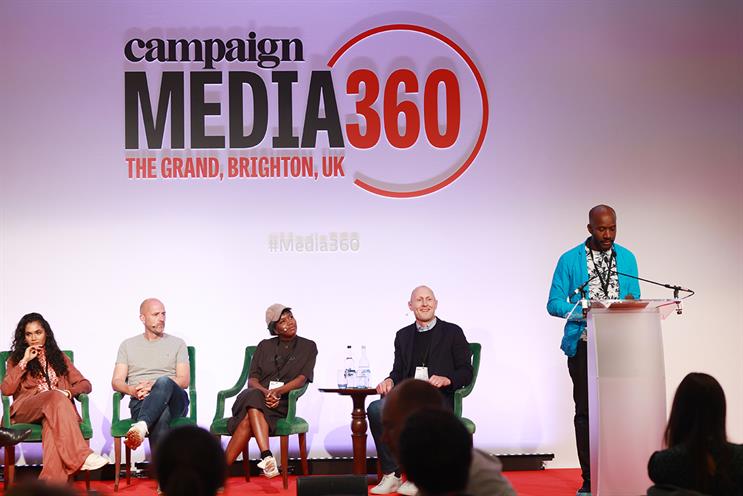
How can the advertising industry attract, nurture and retain the next generation of talent while ensuring that it's as diverse as the consumers it serves? What's the best way to tap into the potential of future technology? How will Gen-Zs experience of hybrid work impact the future of the industry?
These were just some of the questions put before the panel at Campaign's Media 360 event in Brighton. Chaired by Campaign's editor-in-chief, Gideon Spanier, panellists included Nafisa Bakkar, CEO and co-founder of Amaliah, Dan Clays, CEO of Omnicom Media Group UK, Shannie Mears, co-founder and head of talent at The Elephant Room, and Marco Bertozzi, president EMEA at global creator commerce company, Whalar.
Bertozzi spoke of his company's commitment to developing a diverse talent pool. "One of the things I do to foster diverse talent is speak in schools – especially state schools – about advertising and a career in this industry. What I find striking is that, so often, these kids don’t believe that a career in advertising is something that they can aspire to. Of those who do, find that there are few opportunities. And if they do land a job in our industry, they sometimes struggle to find the suitable role models they need that represent them.”
"There is a plethora of talent out there that doesn't know this industry exists," said Mears. "But we don't just have a recruitment problem. We also have a problem with retention. They get the vibe of the company culture and realise they can't be themselves. I liked my time at an advertising agency, but I didn't feel like I'd be empowered there long-term. Without mentorship, diverse talent will leave adland for a side hustle or something else. And we won't be able to build a sustainable ecosystem for talent."
"Diversity becomes a priority because someone has won a pitch by promising a team that doesn't exist," said Clays. "Then there's a mad dash to find the talent - that's not sustainable. We need to find new sources of talent by looking in underrepresented communities and outside London. We need to use technology to be more creative and use the return to work to find new ways of encouraging people to want to stay in the industry."
Moving the discussion onto what "better advertising" looks like, Bakkar talked about the power of storytelling to connect with the younger generation. "Younger consumers hate advertising. But they love storytelling. You can reach these consumers by being more value- and purpose-led.
"Recently, we put this approach into action for Lloyds, and the dwell time we got them was over four minutes, where they usually settle for one minute. There are really compelling ways for brands to show up in the spaces where diverse consumers are and to grab their attention."
"Unless you are the BBC or a subscription service such as Amazon Prime, advertising will be vital to the future," Clays pointed out. "We need to get it right. That means modelling for attention - we have to think of attention as a new currency. We also have to get things such as frequency right, with smarter media planning."
In his closing remarks, Bertozzi put the need for better advertising into sharp relief. "If we don't make advertising more engaging and make it representative, we're in danger of the Gen Alphas and the Gen Zs just not being interested in advertising. They'll go somewhere else."


